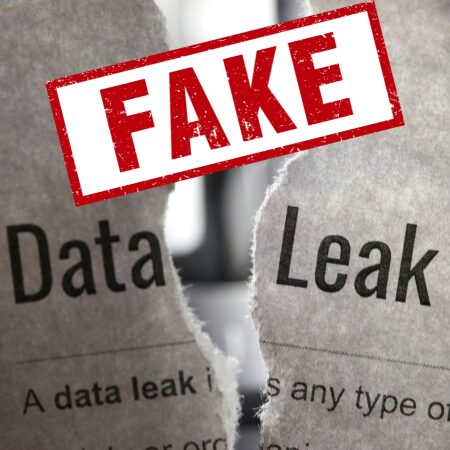- For Enquiry
- 847-868-9253
- 847-868-9208

Outdated Technology Is Costing Your Organization Money
August 2, 2024
Recent Cyber-Attacks Highlight The Urgency Of Strong Cybersecurity For All Businesses
August 2, 2024Just when you think cybercriminals will run out of new ideas for how to scam people, they find a way to get creative and surprise you. 
Earlier this year, Europcar, an international car rental company from France, discovered a cybercriminal selling private information about its 50 million+ customers on the dark web. The car rental company immediately launched a formal investigation, only to find that the data being sold was fake. The information was falsified, most likely done with the help of generative AI.
How Did They Do It?
With AI-powered tools like ChatGPT, it’s easy for cybercriminals to generate realistic-looking data sets quickly. Smart cybercriminals do their research and design data sets that look complete, with correctly formatted names, addresses and e-mails, and can even include local phone numbers to match. They will also leverage online data generators that can quickly create large, fake data sets designed for software-testing purposes to develop authentic-looking data sets. Once they have these, hackers choose the target they claim to have stolen the data from and post the information on the dark web.
Why Are They Doing It?
Why would a hacker fake a data breach? There are a couple of reasons, besides reaping the same benefits without the work of hacking a network’s security system.
- Creating Distractions. One of the best ways to get a company to let down its defenses is to focus on something else, like finding a breach in its system. The company will be so intent on finding where a hacker was already able to get into its network that it will likely miss an attack from a different angle.
- Bolstering Their Reputation. Reputation is highly valued within the hacker community. Targeting a well-known brand publicly is a way for them to earn notoriety and get noticed by other hacker groups.
- Manipulating Stock Prices. For publicly traded companies, a data breach can cause a rapid 3% to 5% (or more) drop in the stock. This can cause widespread panic, allowing cybercriminals to manipulate stocks for financial gain.
- Learning Security Systems. Faking a data breach can allow cybercriminals to gain insight into the company’s security processes to prevent, detect and resolve attacks. Knowing threat response time and security capabilities can help them fine-tune their attack strategy.
Why Is This Bad For Businesses If The Data Is Fake?
By the time the public is made aware that the information is fake, the damage is already done. For example, in September 2023, Sony was targeted by a ransomware group that announced it had breached the company’s network and acquired its data. The breach was all over the news, where reporters repeatedly dragged Sony’s brand through the dirt, and by the time the investigation concluded that the hacker’s claim was false, irreparable damage had been done to their name.
What Can You Do To Prevent Fake Data Breaches?
If you want to avoid being the victim of a fake data breach, these are good steps to follow:
- Actively Monitor The Dark Web. You or your cybersecurity team should routinely monitor the dark web. If you encounter an attacker selling your data, investigate the claim immediately to prevent extensive damage.
- Have A Disaster Recovery Plan In Place. Don’t let your team wonder what they should say if a data breach occurs. This communication plan needs to be developed in advance and fine-tuned if or when a breach occurs.
- Work With A Qualified Professional. You are in business to do what you love to do, not deal with IT-related issues. Working with a cybersecurity expert who knows what to look for, how to resolve issues and how to prevent breaches takes tasks off your plate and gives you peace of mind, and will make sure #1 and #2 are taken care of.
Data breaches can create enormous problems for your organization. Get ahead of the issue and have someone proactively monitor your network and the dark web to keep you secure. If you want a no-obligation, third-party opinion on whether or not your network is vulnerable to an attack or properly secured, we’re happy to provide one for FREE. Call us at 847-868-9253 or click here to book your FREE Security Risk Assessment with one of our cybersecurity experts.



